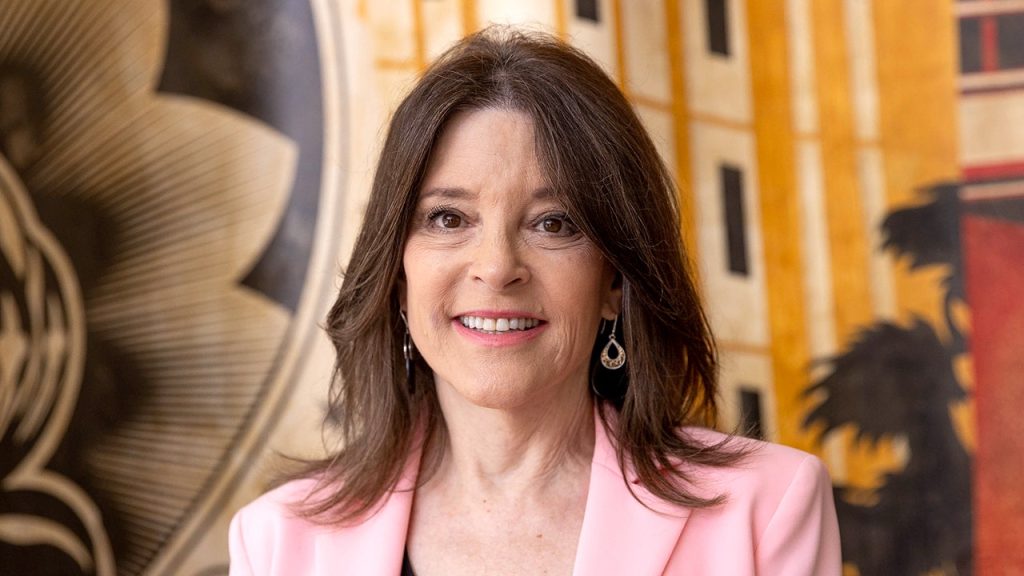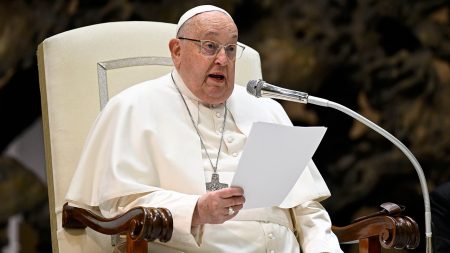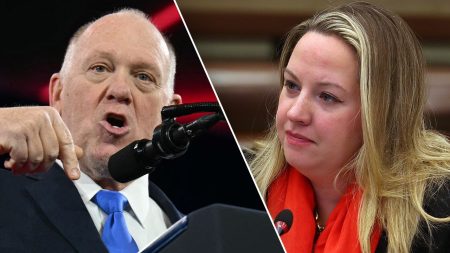Marianne Williamson, the renowned author, spiritual advisor, and political activist, has formally announced her candidacy for the chairpersonship of the Democratic National Committee (DNC). Her bid, announced through a letter addressed to DNC members and published on her website, “Transform with Marianne Williamson,” underscores her commitment to revitalizing the Democratic Party and equipping it to navigate the evolving political landscape. Williamson’s campaign centers on the premise that the Democratic Party requires a fundamental reinvention to effectively counter the political strategies employed by former President Donald Trump and the contemporary Republican Party.
Williamson’s campaign narrative emphasizes the need to understand and address the psychological and emotional dimensions of Trump’s appeal, arguing that traditional political strategies are insufficient to counter the “21st-century political movement” represented by MAGA. She contends that data analysis, fundraising, field organizing, and technological advancements, while important, are inadequate on their own. Instead, she proposes a strategy focused on igniting a resurgence of patriotic fervor and connecting with the American populace on an emotional level, fostering a sense of shared national legacy that motivates voters to choose Democratic candidates.
This focus on the emotional and psychological aspects of political engagement reflects Williamson’s background as a spiritual advisor and author. Her campaign for the DNC chair is not her first foray into the political arena. She previously sought the Democratic presidential nomination in both the 2020 and 2024 election cycles. While her presidential bids did not gain significant traction, her entry into the DNC chair race signals her persistent commitment to shaping the future of the Democratic Party.
Williamson’s analysis of the current political climate underscores the need for Democrats to acknowledge the effectiveness of Trump’s tactics. She cautions against underestimating the historical significance of Trump’s political achievements, particularly his ability to mobilize a substantial following. Her assessment acknowledges the challenge presented by Trump’s brand of “political theater” and the adrenaline-fueled environment it has created, which she believes has drawn voters into his camp and simultaneously alienated others from the Democratic Party.
Williamson’s strategy for revitalizing the Democratic Party hinges on creating a sense of shared national purpose and connecting with voters on a deeper emotional level. She posits that appealing to patriotism and emphasizing the historical legacy of the United States can create a powerful narrative that resonates with voters and motivates them to support Democratic candidates. This approach contrasts with a reliance on traditional political tactics and emphasizes the importance of understanding and addressing the emotional currents that shape political choices.
The race for the DNC chair is attracting a diverse field of candidates, each offering distinct visions for the future of the Democratic Party. Former Maryland Governor Martin O’Malley, who recently served as the Social Security Administration commissioner, is among those vying for the position. The competition for the DNC chair underscores the ongoing internal debate within the Democratic Party about the best path forward in a rapidly changing political landscape. Williamson’s entry into the race adds a unique perspective, emphasizing the importance of emotional engagement and a revival of patriotic fervor as key components of a successful Democratic strategy.










